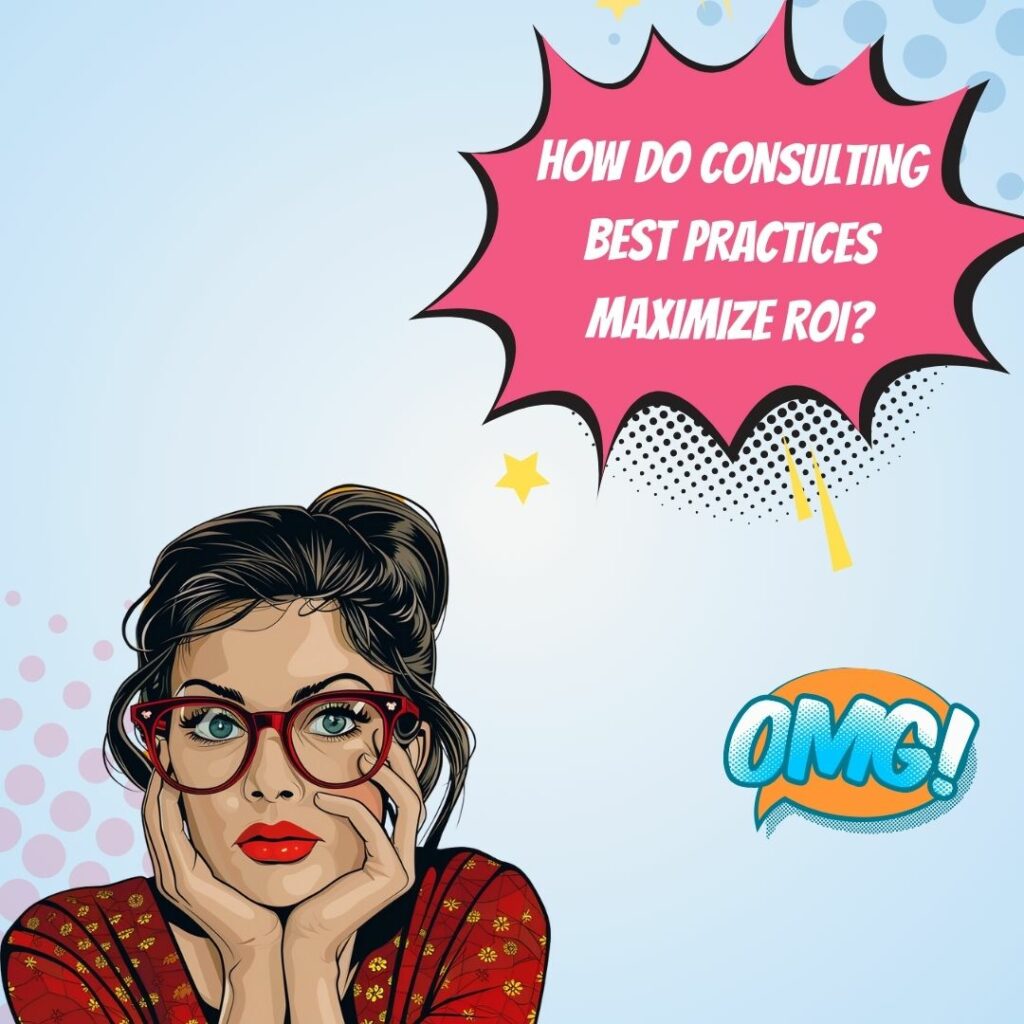Key Takeaways
✅ Develop a Strong Personal Brand: Establish yourself as a thought leader by creating a professional online presence, including a well-written and up-to-date website and active social media profiles. Ensure consistency across all platforms to build credibility and trust with potential clients.
✅ Focus on Specialized Services: Tailor your services to align with your strengths and the needs of your target audience, whether it's digital marketing, brand management, market research, or social media marketing. Specialization allows you to provide more targeted solutions, leading to better results and higher ROI.
✅ Implement a Strategic Marketing Plan: Identify your ideal client and understand their needs to develop a tailored marketing strategy. Regularly evaluate and adjust your plan to include various marketing methods such as networking, online advertising, and thought leadership for optimal results.

Introduction
In the fast-paced world of marketing, achieving maximum return on investment (ROI) and sustained growth requires more than just conventional strategies. Engaging with a marketing consultant can provide the expertise and innovative approaches necessary to propel your business forward. By adhering to best practices, you can ensure that your collaboration with a marketing consultant delivers impactful results and drives significant improvements across all facets of your marketing efforts.
From setting clear objectives to fostering a collaborative environment, the right practices can make all the difference in optimizing your marketing initiatives. This guide will explore the top marketing consulting best practices that can help you maximize ROI and achieve sustainable growth. Whether you're a small business owner or a seasoned marketing professional, these strategies will equip you with the tools and insights needed to make informed decisions and elevate your marketing game.
Top Statistics
| Top Statistics | Insight |
|---|---|
| Market Size and Growth: The management consulting market size in the United States was valued at approximately $329 billion in 2022. | This shows the expansive scope of the consulting market, highlighting its crucial role in aiding business growth and strategy. |
| Projected Industry Growth: The marketing consultants industry in the US is projected to reach $87.7 billion in 2024, with a compound annual growth rate (CAGR) of 4.0%. | Indicating steady growth, this statistic underscores the increasing demand for marketing consulting services. |
| Industry Concentration: The top four companies in the Marketing Consultants industry in the US generate 43.1% of industry revenue. | This highlights the significant influence of leading firms and the importance of working with renowned consultants for effective strategy development. |
| User Demographics: The industry serves a wide range of clients across different sectors, including technology, retail, and consumer goods. | With diverse client portfolios, marketing consultants can tailor strategies to various industry needs, boosting overall efficacy. |
| Industry Trends: The increasing reliance on data-driven and strategic approaches to marketing and growth is driving the demand for marketing consulting services. | The shift towards data-driven strategies points to a future where analytics and strategic planning are key to maximizing ROI and growth. |
Strengthen Your Personal Brand
Establishing yourself as a thought leader is essential for any marketing consultant. A professional online presence starts with a well-crafted and regularly updated website, alongside active social media profiles. Consistency across all platforms builds credibility and trust, critical factors for attracting potential clients. How can you ensure that your brand message is uniform and compelling across different mediums? Additionally, sharing insightful content and engaging with your audience regularly will reinforce your expertise. Attend industry events and webinars to further establish your authority and expand your network. Personal branding is an ongoing process, so continuously refine your message to stay relevant and impactful.
Develop a Complete Marketing Plan
Understanding your ideal client is the cornerstone of an effective marketing strategy. Tailor your efforts by defining their needs and pain points. A clear and concise value proposition that highlights your unique expertise and services will set you apart. Balancing content marketing, email outreach, and networking helps to reach your audience effectively. Are you maximizing your use of various marketing channels to connect with your target audience? Consider utilizing advanced analytics to fine-tune your strategy based on performance data. Collaborate with other industry professionals to gain new insights and ideas. Continuously assess and adapt your marketing plan to stay ahead of trends and meet evolving client needs.
Build a High-Quality Website
A high-quality website acts as a digital storefront for your services. It should showcase your expertise, services, and success stories. Make sure the design is easy to navigate and mobile-friendly, as an increasing number of users access content through smartphones. Regular updates with fresh content will keep your visitors engaged and likely to convert into clients. Does your website reflect your professional capabilities and deliver a seamless user experience? Incorporate SEO best practices to increase visibility and attract organic traffic. Utilize client testimonials and case studies to build trust and credibility. Ensure that your contact information is easily accessible to facilitate communication with potential clients.
Leverage Social Media and Networking
A strong social media presence on platforms like LinkedIn and Twitter is crucial. Engage with your audience by sharing valuable content and participating in online discussions. Attending industry events can also help build relationships and generate leads. Networking, both online and offline, remains a powerful tool for business growth. Are you actively engaging and providing value through your social channels? Create a content calendar to maintain consistency in your posts and interactions. Join relevant groups and forums to expand your reach and connect with like-minded professionals. Use social media analytics to track engagement and refine your approach for better results.
Produce High-Quality, Relevant Content
A solid content strategy is essential for maintaining a strong online presence. Creating content that offers valuable insights and solutions will attract your target audience. Using diverse formats like blog posts, videos, and podcasts caters to different preferences and learning styles. Consistency in publishing keeps your audience engaged and establishes you as an authority in your field. How consistently are you producing and distributing high-quality content? Utilize content planning tools to streamline your workflow and ensure regular updates. Collaborate with guest contributors to provide fresh perspectives and expand your reach. Continuously gather feedback from your audience to improve and tailor your content strategy.
Measure and Improve Performance
Setting clear goals and key performance indicators (KPIs) is vital for tracking the success of your marketing efforts. Regularly analyzing these metrics helps identify areas for improvement and optimize your strategy. Staying updated with the latest marketing trends ensures continuous growth and improvement. What metrics are you using to measure your marketing success, and how often do you revisit your strategy for optimization? Use data visualization tools to simplify analysis and highlight key insights. Schedule regular strategy reviews to stay aligned with your business objectives. Implement A/B testing to experiment with different approaches and find the most effective tactics.
AI Marketing Engineers Recommendation
Recommendation 1: Implement Personalized Marketing Campaigns: Personalization is more than just a buzzword; it's a key driver of marketing success. According to a study by Epsilon, 80% of consumers are more likely to make a purchase when brands offer personalized experiences. By leveraging data analytics and AI, companies can understand customer behaviors and preferences, tailoring campaigns that speak directly to individuals' needs. This not only enhances customer satisfaction but also increases conversion rates, ultimately driving higher ROI.
Recommendation 2: Adopt Omnichannel Marketing Strategies: The modern consumer engages with brands across multiple platforms. A report from Harvard Business Review found that 73% of consumers use multiple channels during their shopping journey. This makes it essential for businesses to ensure a seamless and consistent experience across all touchpoints, whether it's social media, email, in-store, or via mobile apps. An omnichannel approach not only helps in retaining customers but also in providing a comprehensive view of customer interactions, which can refine marketing strategies for better growth.
Recommendation 3: Utilize Marketing Automation Tools: Incorporating marketing automation tools can significantly boost efficiency and effectiveness in your campaigns. Tools like HubSpot, Marketo, and Salesforce Pardot streamline repetitive tasks, segment audiences, and provide insightful analytics. According to Forrester, businesses that use automation see a 10% increase in their pipeline contribution. By automating processes such as email marketing, social media posting, and lead nurturing, companies can save time, reduce errors, and focus more on strategy and creativity, thereby enhancing ROI.
Relevant Links
- Discover Proven Strategies for Increasing Sales Conversions and Refining Customer Journeys
- Unlock the Power of High-Quality Content Creation to Drive Engagement
- How User Behavior Insights Drive Effective Marketing Decision Making
- Maximize Your Marketing ROI with Smart Performance Tracking and Optimization
- Enhancing Your Professional Brand Through Consistent and Compelling Messaging
Conclusion
implementing best practices in your marketing consulting endeavors is crucial for achieving maximum ROI and growth. By clearly defining your goals, maintaining open communication, and fostering a collaborative environment, you can create a strong foundation for success. Remember, the key to a fruitful partnership with a marketing consultant lies in mutual understanding and alignment of objectives.
Additionally, continuous evaluation and adaptation of strategies are essential to stay ahead in the ever-evolving marketing landscape. Regularly reviewing performance metrics and being open to new ideas and approaches will ensure that your marketing efforts remain relevant and effective. A proactive attitude towards learning and improvement will not only enhance your current initiatives but also pave the way for future successes.
Ultimately, the right marketing consultant can be a transformative asset for your business. By following the best practices outlined in this guide, you can optimize your marketing strategies, drive substantial growth, and achieve a higher return on investment. Embrace these practices, and watch your business reach new heights of success and profitability.
FAQs
Question 1: What are your business goals and objectives?
Answer: This question helps the marketer understand the client’s desired outcomes and tailor the marketing strategy to align with those goals.
Question 2: What does success look like to you?
Answer: This question helps define what success means to the client, which can be more sales, brand awareness, or specific business outcomes.
Question 3: What is your story?
Answer: This question helps understand the client’s brand story, which goes beyond the functional aspects of products and services and aims to create loyalty and meaningful bonds with customers.
Question 4: What makes your business remarkable?
Answer: This question helps identify what sets the client’s business apart from competitors and how to leverage that uniqueness in marketing strategies.
Question 5: Who are your competitors and what are they doing?
Answer: This question helps understand the competitive landscape and identify opportunities to differentiate the client’s business.
Question 6: What type of marketing do you recommend for me: institutional marketing or direct marketing?
Answer: This question helps determine whether the focus should be on building the client’s image or generating direct inquiries.
Question 7: What is your expected timeframe for achieving success?
Answer: This question sets realistic expectations and helps create a focused strategy to achieve specific goals within a given timeframe.
Question 8: What are the limitations of the market you’re operating in?
Answer: This question helps understand any market-specific challenges that may impact the effectiveness of certain strategies.
Question 9: What is your customer retention strategy?
Answer: This question helps identify opportunities to improve customer retention, which is often more cost-effective than acquiring new customers.
Academic References
- Harvard Business Review. (1982). Consulting Is More Than Giving Advice This article emphasizes the need for clients to have a deeper understanding of consulting assignments' potential outcomes and for consultants to adapt and deliver on expanded expectations to curb financial waste.
- Constant Contact. (2024). Marketing for Consulting Business: The Best Tips and Techniques This article highlights the importance of defining a target market, creating a strong brand identity, and developing an online presence through a website, digital blog, email content, and social media platforms.
- Consulting Success. (2024). Marketing for Consultants Study This study provides insights into the marketing strategies and methods used by consultants, including the most effective marketing methods and the challenges consultants face in marketing their services.












